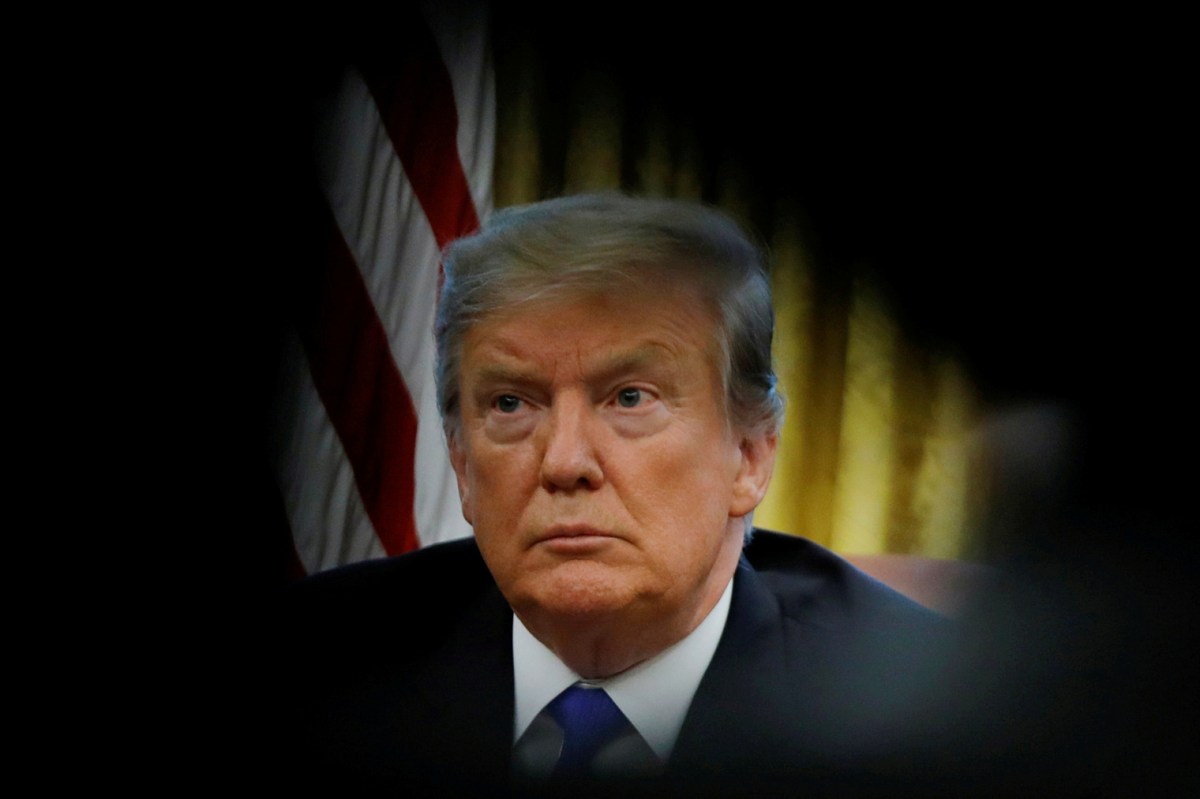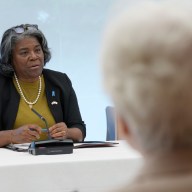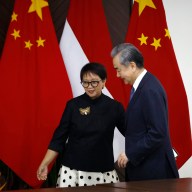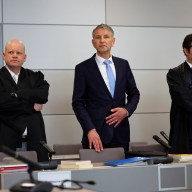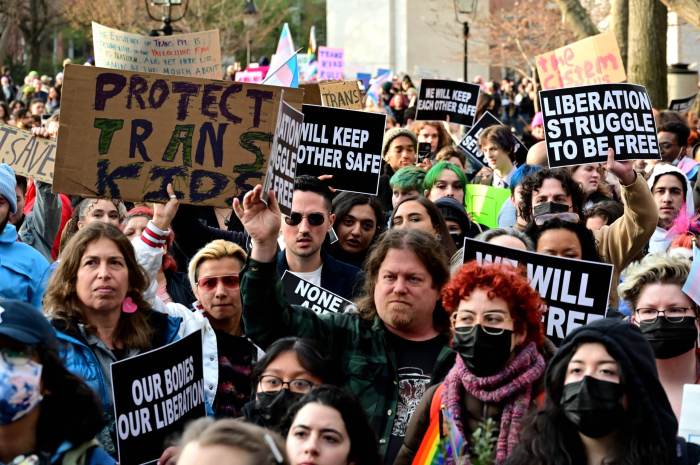By Josh Smith
HANOI (Reuters) – U.S. President Donald Trump says sanctions on North Korea are “on in full” ahead of his summit with leader Kim Jong Un in Hanoi this week, but analysts say time is running out on Washington’s “maximum pressure” campaign.
Kim and Trump will meet for the second time this week after their historic meeting in and denuclearize North Korea, but no concrete agreements. Singapore last year led to general commitments to improve relations
North Korea’s mission to the United Nations released a memo last week warning the country is facing a food shortfall, blaming the weather as well as “barbaric and inhuman” sanctions it says have blocked much-needed farming supplies.
Kim appears eager to secure at least some relief from sanctions, which have stood in the way of official investment by companies and governments, many of which have signaled they are waiting on sanctions relief to invest in everything from highways and telecommunications to special economic zones.
But across the region there are signs the political and economic pressure on North Korea has sprung leaks as Pyongyang adapts to restrictions and more countries signal their willingness to reopen trade.
Fraying sanctions enforcement prompted U.S. Senators Ted Cruz and Robert Menendez to write a letter to Secretary of State Mike Pompeo this month expressing “deep concern” that efforts by the United States and South Korea to engage with North Korea may lead to sanctions violations.
All this means Trump may have less leverage than he thinks going into this summit, said Joshua Stanton, an American lawyer who helped draft past sanctions legislation and is critical of what he sees as failures to enforce the current rules.
“What Trump does not understand is that sanctions have short half-lives because the North Koreans are highly adaptable,” he said. “Trump’s leverage to disarm Kim without war is draining away.”
INVESTMENT ON HOLD
Trump’s “maximum pressure” campaign not only imposed sanctions on North Korea over its nuclear weapon program, but rallied countries to cut economic and political ties with Pyongyang and expel North Korean workers.
Vietnam, which is hosting the second summit, is an example of both the effects and limitations of maximum pressure.
Despite their Cold War ties and wartime alliance, the volume of trade between Vietnam and North Korea has gone from $15 million in 2012 to being all but non-existent, according to Vietnam’s foreign ministry, which called trade “small and inconsistent”.
But ties have lingered.
There are still two North Korean restaurants in Hanoi, and two further companies listed with North Korean owners residing in Hanoi are still operating, according to a Reuters review of company registration records.
Vietnam told the U.N. last August it was “reviewing the earned income” of North Koreans within Vietnam.
In another report, Vietnam said it had not granted or reissued work visas for North Korean nationals since 11 Sept., 2017.
Despite the risks, some in Vietnam are eager to do business with North Korea if sanctions are lifted.
Last month, the head of Vietnam’s largest telecommunication company Viettel told Reuters his company had been seeking to invest in North Korea. [nL3N1Z703O]
“We first sought permission from North Korea to build a mobile network there in 2010,” CEO Le Dang Dung said. “But we’re still waiting for sanctions to be lifted and for the country to open its market to foreign investors.”
Nguyen Thuy Hanh, vice chairwoman of Truong An Group, a company which owns a golf course, a restaurant chain and some mining projects, said she too was seeking to invest in North Korea once sanctions were lifted.
“With its abundant natural resources, convenient geographical location, ports and good education system, I think North Korea could develop rapidly,” Hanh said.
But sanctions still block most overt investment, said Tom Fowdy, a North Korea researcher and founder of a group that promotes travel and cultural engagements in North Korea.
“Even if more things are slipping through the cracks now, most countries in the world will not take the political risk of jumping into commercial relationships with North Korea before sanctions are lifted,” he said.
While small-scale trading along China’s border with North Korea might pick up, major trading of coal and minerals will be avoided for now, he added.
Michael Heng, a Singapore-based business consultant, said he took a team of businessmen in September to explore market opportunities in North Korea.
They came back with proposals for $2 billion worth of investment projects.
“For now, there is nothing that can be done because of sanctions,” Heng said.
“INEFFECTIVE” SANCTIONS
Vietnam was one of several countries, including South Korea, that were identified by U.N. monitors as allowing sanctioned North Korean coal through some ports.
And Japanese authorities say they have continued to track illicit ship-to-ship transfers of fuel by North Korean smugglers.
In recent months, North Korea had defied international sanctions through a “massive increase in illegal ship-to-ship transfers of petroleum products and coal,” U.N. monitors said in a confidential report seen by Reuters in early February, describing the sanctions as “ineffective”. [nL1N1ZZ1PQ]
During 2018, the U.N. Security Council North Korea sanctions committee blacklisted some 25 vessels for breaching sanctions, but the United States has faced opposition from Russia and China in attempts impose further designations.
Stanton said a number of governments had committed “wilful” violations of sanctions. The Trump administration had “relaxed U.S. enforcement of both financial sanctions and diplomatic pressure that are meant to force Kim Jong Un to choose between his nukes and the survival of his regime,” he added.
U.S. officials did not respond to requests for comment, but Pompeo told CNN on Sunday that sanctions aimed at preventing economic trade with North Korea “are definitely going to remain in place”.
A recent report by NK News, a group that follows North Korea, found South Korea had failed to notify a U.N. sanctions committee when it sent about 300 tonnes of petroleum products to North Korea in 2018, suggesting South Korea “has chosen to implement … sanctions on North Korea on a selective and often inconsistent basis”.
South Korea’s government said in that case it was “complying with the framework of sanctions on North Korea” while pursuing cooperative projects with the North.
China, by far North Korea’s biggest trading partner, says it is committed to upholding all U.N. resolutions on North Korea, including enforcing sanctions. But Beijing has also defended what it calls “normal trade” with Pyongyang.
Total China-North Korea trade fell 51.2 percent in 2018 compared with the previous year, with imports from North Korea plunging 87.7 percent.
In statements after Trump’s first meeting with Kim, North Korean officials said while sanctions were a challenge to be overcome, Pyongyang’s diplomatic outreach and pledges of denuclearization were driven by their own desire to reduce their isolation, not by international pressure.
Last year saw the largest number of high-level North Korean delegations fan out across the globe in 20 years, according to data collected by the North Korea in the World project, which tracks the country’s international engagement.
“Sanctions themselves tend to only be effective for up to a year, a year and a half,” said Park Won-gon, dean of international affairs at South Korea’s Handong Global University.
“Afterwards the entire sanction spectrum cannot help but fall into disarray.”
(For live coverage of the summit, click: https://www.reuters.com/live/north-korea); Additional reporting by James Pearson, Khanh Vu, and Mai Nguyen in Hanoi, Jack Kim in Singapore, Ben Blanchard in Beijing, David Brunnstrom in Washington, Michelle Nichols in New York, and Joyce Lee in Seoul.; Editing by Lincoln Feast.)

